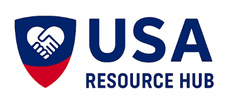The Special Supplemental Nutrition Program for Women, Infants, and Children (better known as WIC) is one of the most impactful public health programs in the United States. It provides targeted nutritional support to low-income pregnant women, new mothers, infants, and children under five. If you are navigating rising food costs or trying to improve your family’s nutrition, WIC can be a vital resource.
Here is what you need to know about who qualifies, what WIC covers, and how to apply without missing out on related benefits.
Who Is Eligible for WIC?
To qualify for WIC in 2025, you must meet three main criteria: categorical, residential, and income eligibility.
1. Categorical Eligibility
You must fall into one of the following categories:
- Pregnant women
- Postpartum women (up to six months after birth or end of pregnancy)
- Breastfeeding women (up to one year after birth)
- Infants (up to age one)
- Children (up to age five)
2. Residential Eligibility
You must live in the state where you are applying. WIC is administered at the state level, so you must apply through your local WIC agency.
3. Income Eligibility
Your household income must be at or below 185% of the federal poverty level. As of July 1, 2025, the updated income guidelines reflect inflation and cost-of-living adjustments. You may also qualify automatically if you or a family member participates in programs like:
- Medicaid
- SNAP (Supplemental Nutrition Assistance Program)
- TANF (Temporary Assistance for Needy Families)
This automatic qualification is known as adjunctive eligibility.
What Does WIC Cover?
WIC provides more than just food. It is a comprehensive support program designed to improve health outcomes for mothers and children. Benefits include:
1. Monthly Food Packages
Participants receive a monthly food allowance tailored to their nutritional needs. This may include:
- Infant formula or baby food
- Whole grains (bread, rice, tortillas)
- Milk, cheese, and yogurt
- Eggs and peanut butter
- Fruits and vegetables
- Cereal and beans
These foods are selected to provide key nutrients like iron, calcium, protein, and vitamins A and C.
2. Nutrition Education
WIC offers free nutrition counseling and education to help families make healthier food choices. This includes tips on meal planning, breastfeeding support, and managing picky eating in toddlers.
3. Breastfeeding Support
Breastfeeding mothers receive enhanced food packages and access to lactation consultants, peer counselors, and breast pumps if needed.
4. Health Screenings and Referrals
WIC clinics provide basic health screenings and can refer participants to medical care, immunizations, and other social services.
How to Apply for WIC
Applying for WIC is straightforward, but it does require documentation and an in-person or virtual appointment.
Step 1: Locate Your Local WIC Office
Visit your state’s WIC website or call your local health department to find the nearest WIC clinic.
Step 2: Schedule an Appointment
You will need to bring:
- Proof of identity (ID, birth certificate)
- Proof of income (pay stubs, Medicaid card)
- Proof of residency (utility bill, lease)
- Proof of pregnancy or child’s age (medical records, immunization card)
Step 3: Complete a Health and Nutrition Assessment
At your appointment, a WIC staff member will assess your nutritional risk through a brief health screening. This helps tailor the food package to your needs.
Step 4: Receive Your Benefits
Once approved, you will receive an eWIC card loaded with your monthly food benefits. You can use this card at participating grocery stores and farmers markets.
School Meal Crossover and Other Benefits
WIC participation can also help streamline access to other programs. For example, many states offer school meal crossover, where children in WIC households are automatically eligible for free or reduced-price school meals. This reduces paperwork and ensures consistent nutrition support as children grow.
Additionally, WIC families may qualify for utility assistance, housing support, and early childhood education programs like Head Start.
WIC is more than a food program. It is a lifeline for families navigating pregnancy, early childhood, and financial hardship. With updated income guidelines and expanded access in 2025, more families than ever are eligible for support.
If you are pregnant, caring for a young child, or supporting someone who is, do not overlook WIC. The application process is simple, the benefits are meaningful, and the impact on your family’s health can be long-lasting.


Leave a Reply